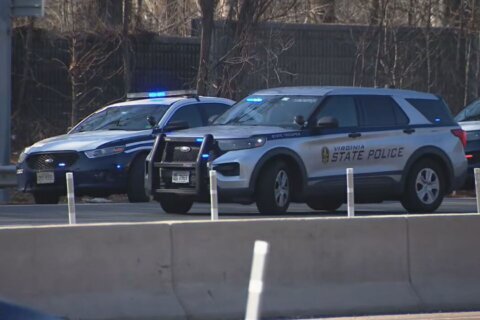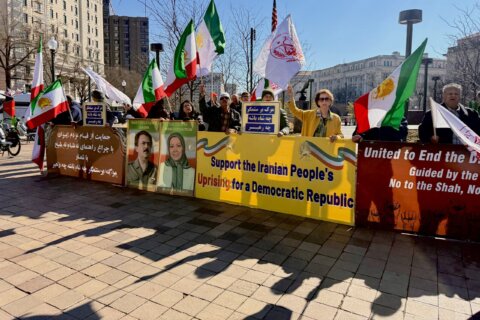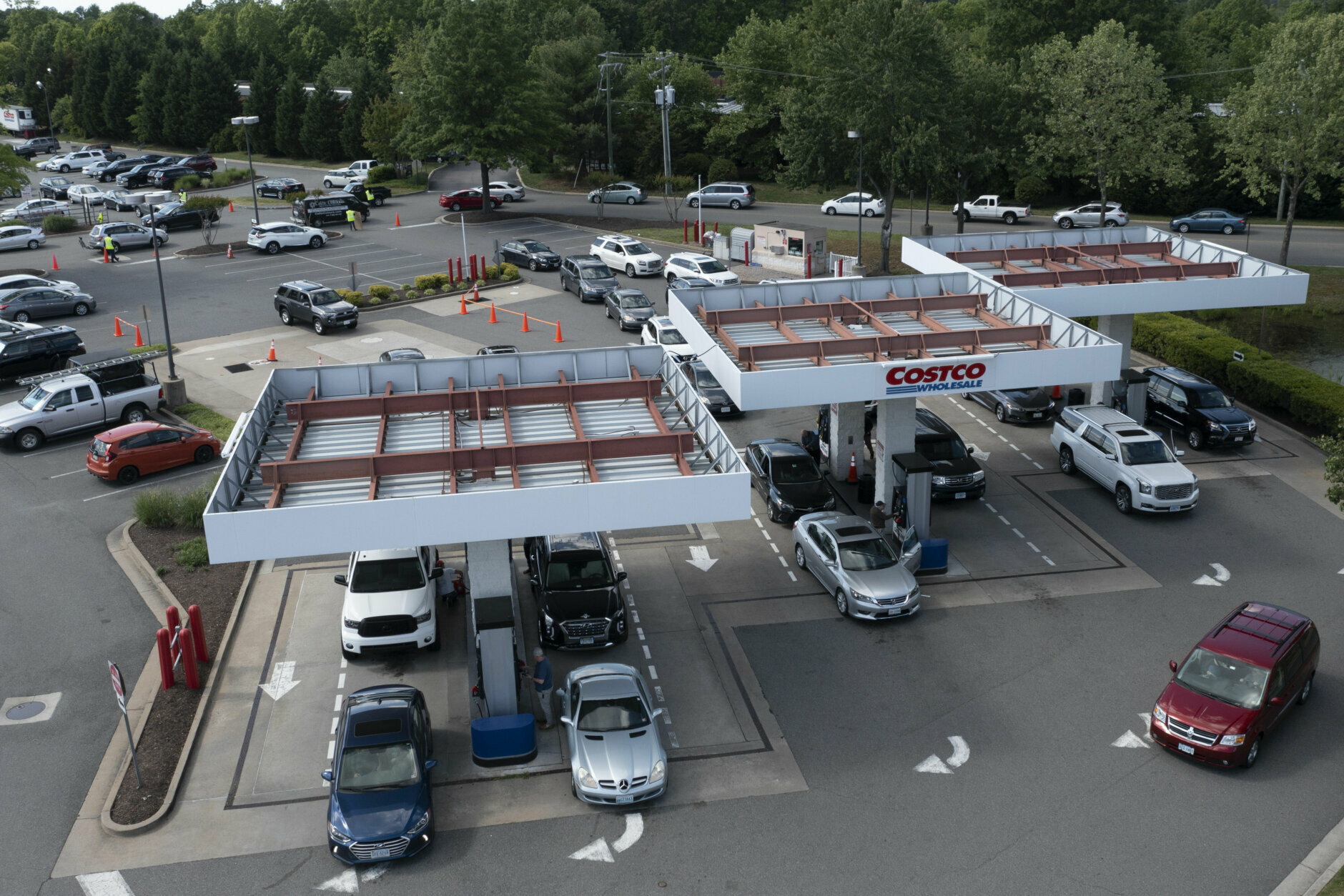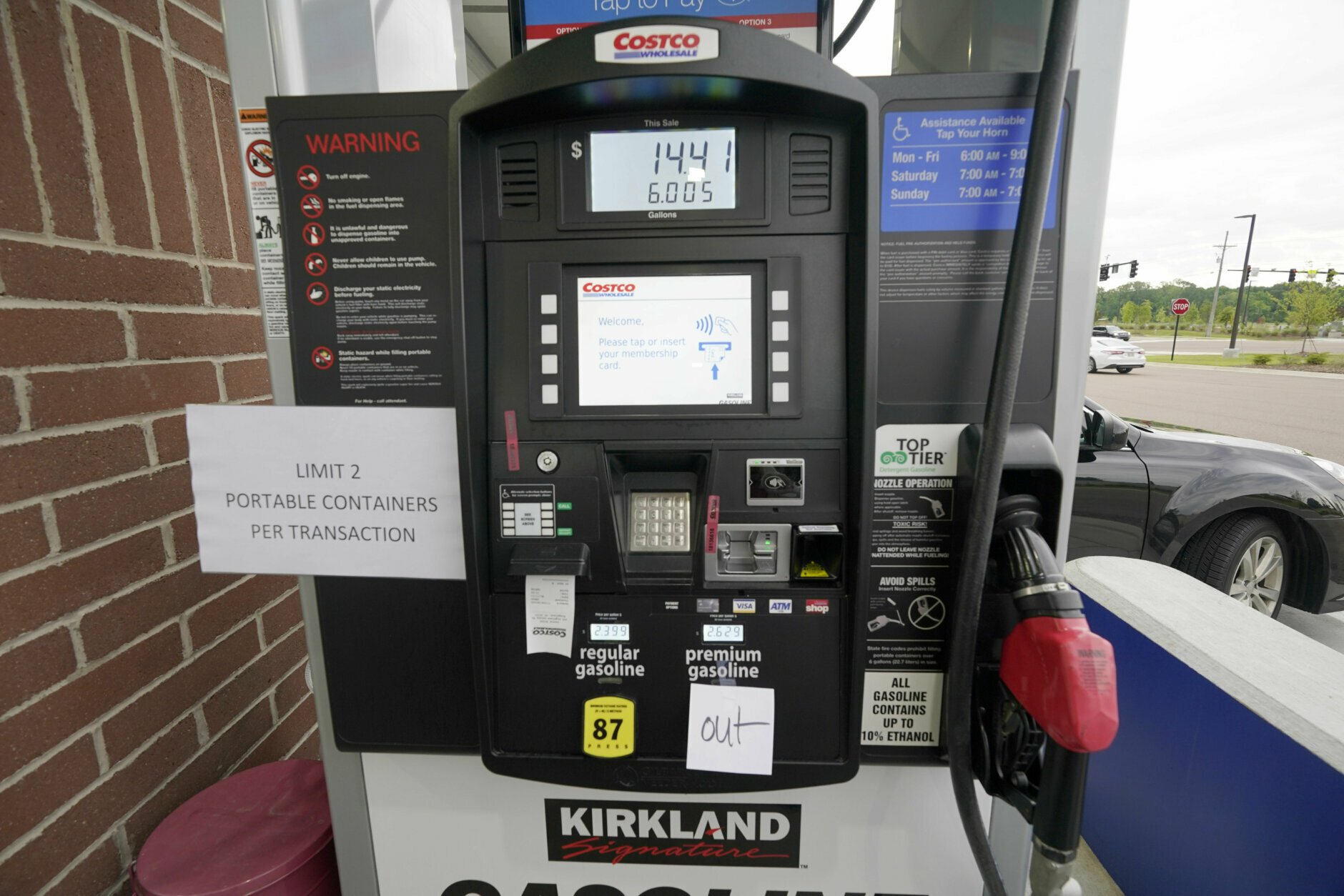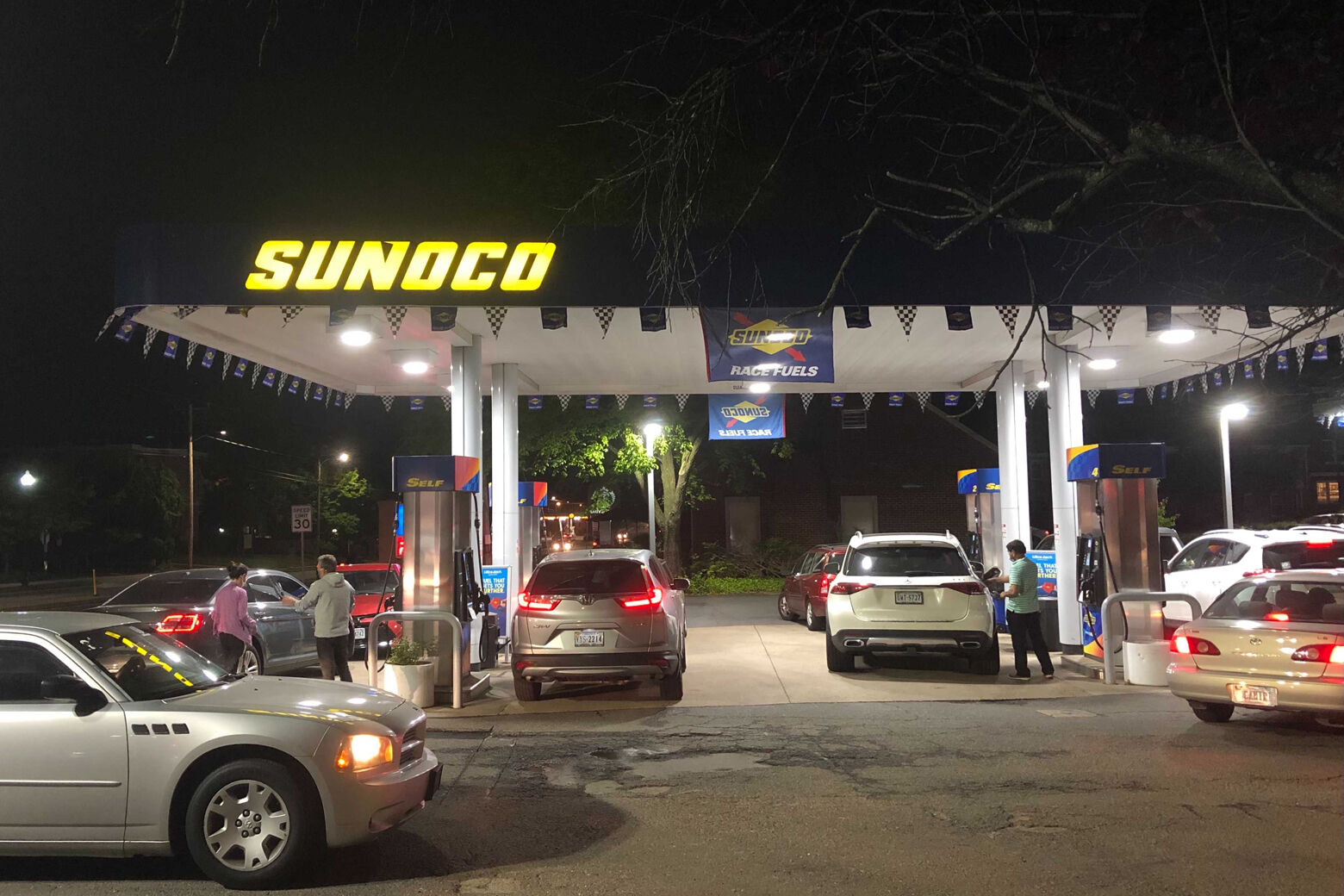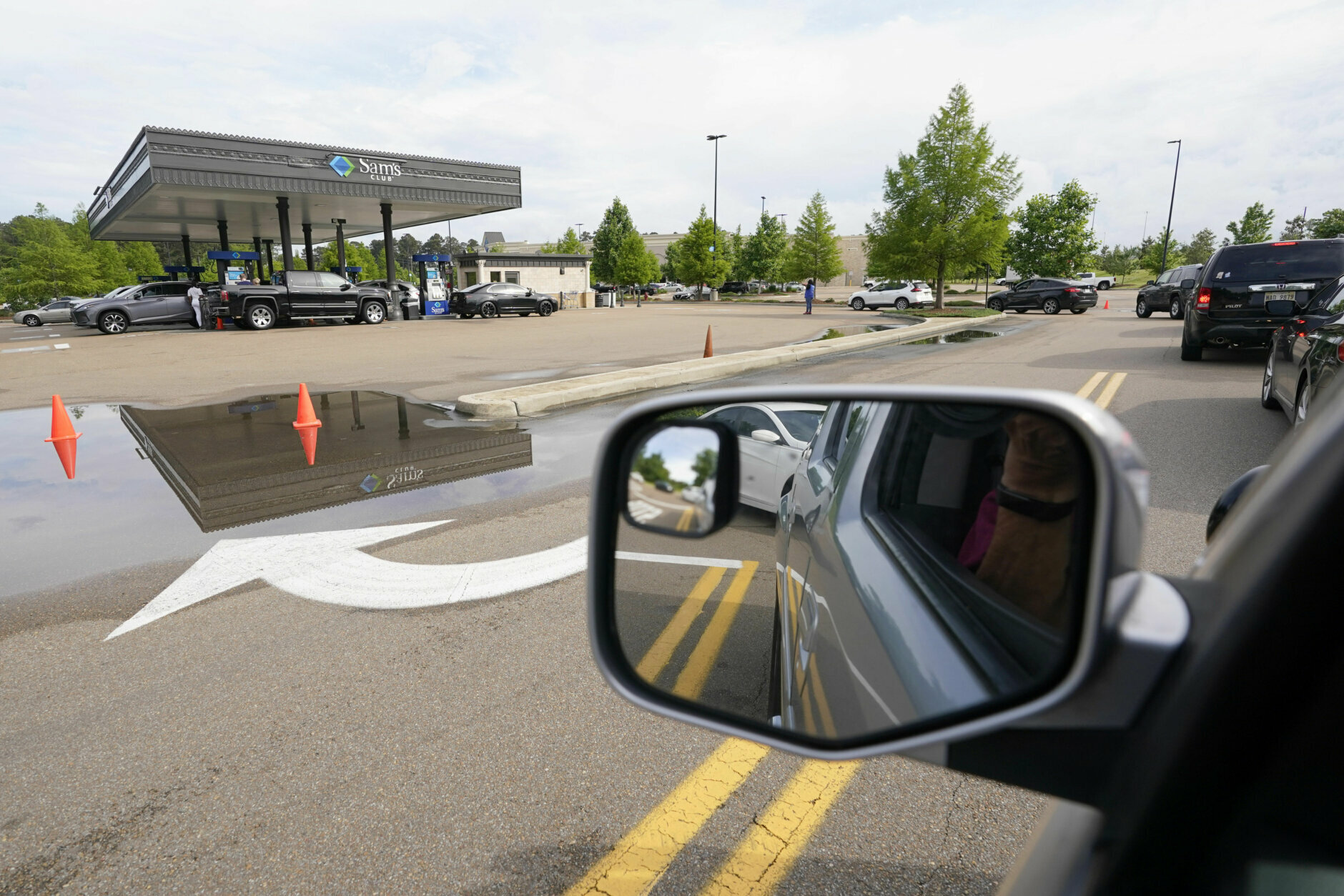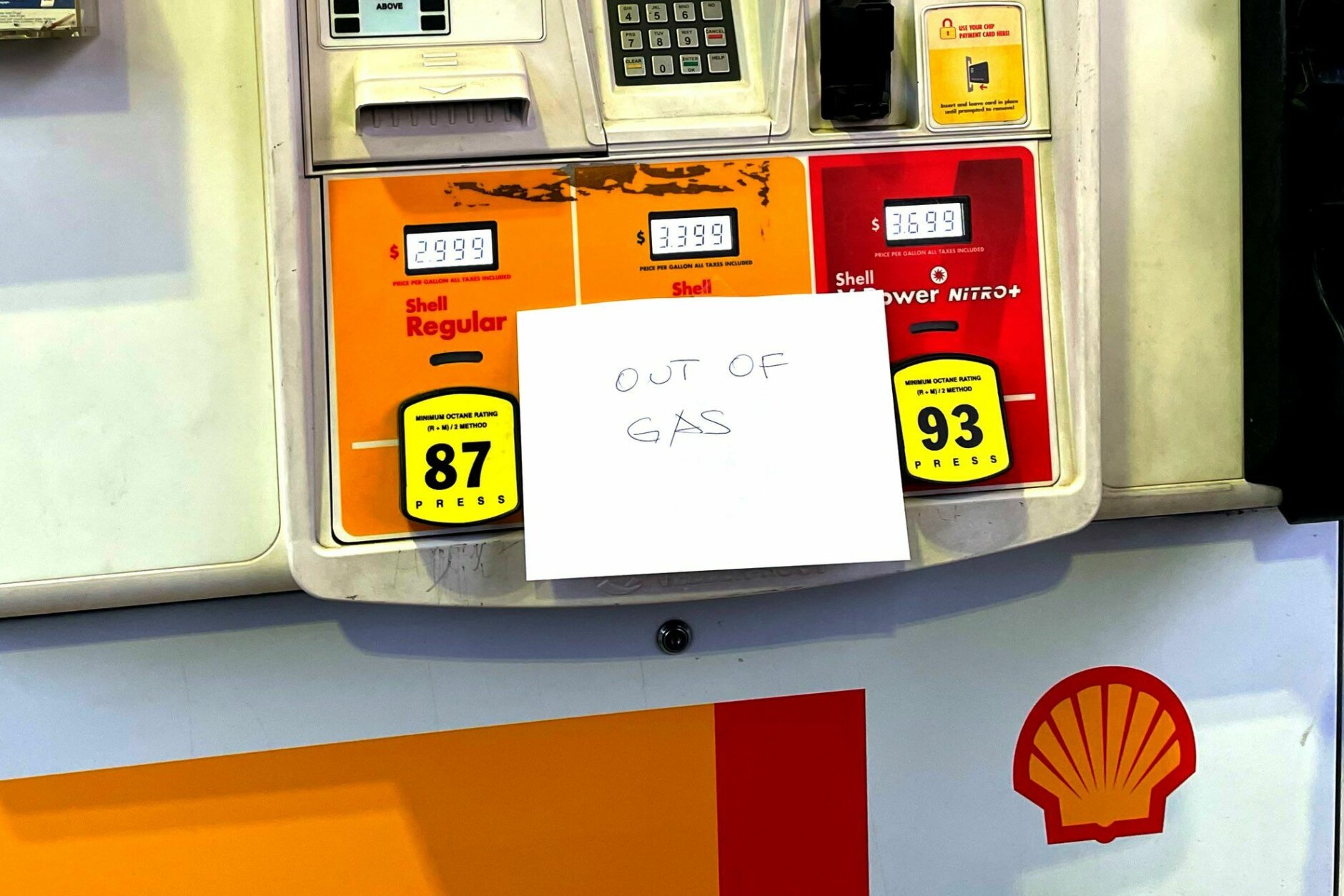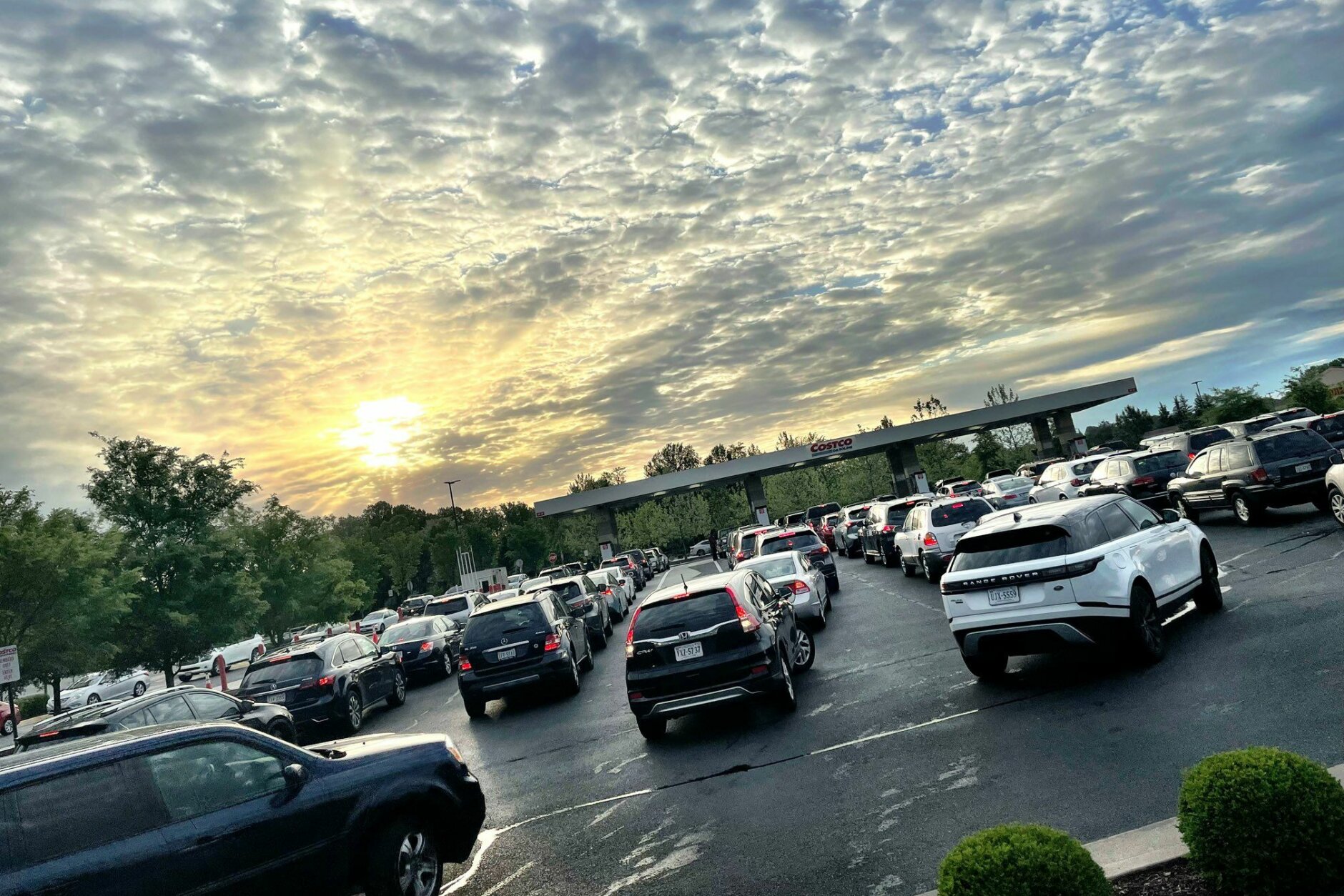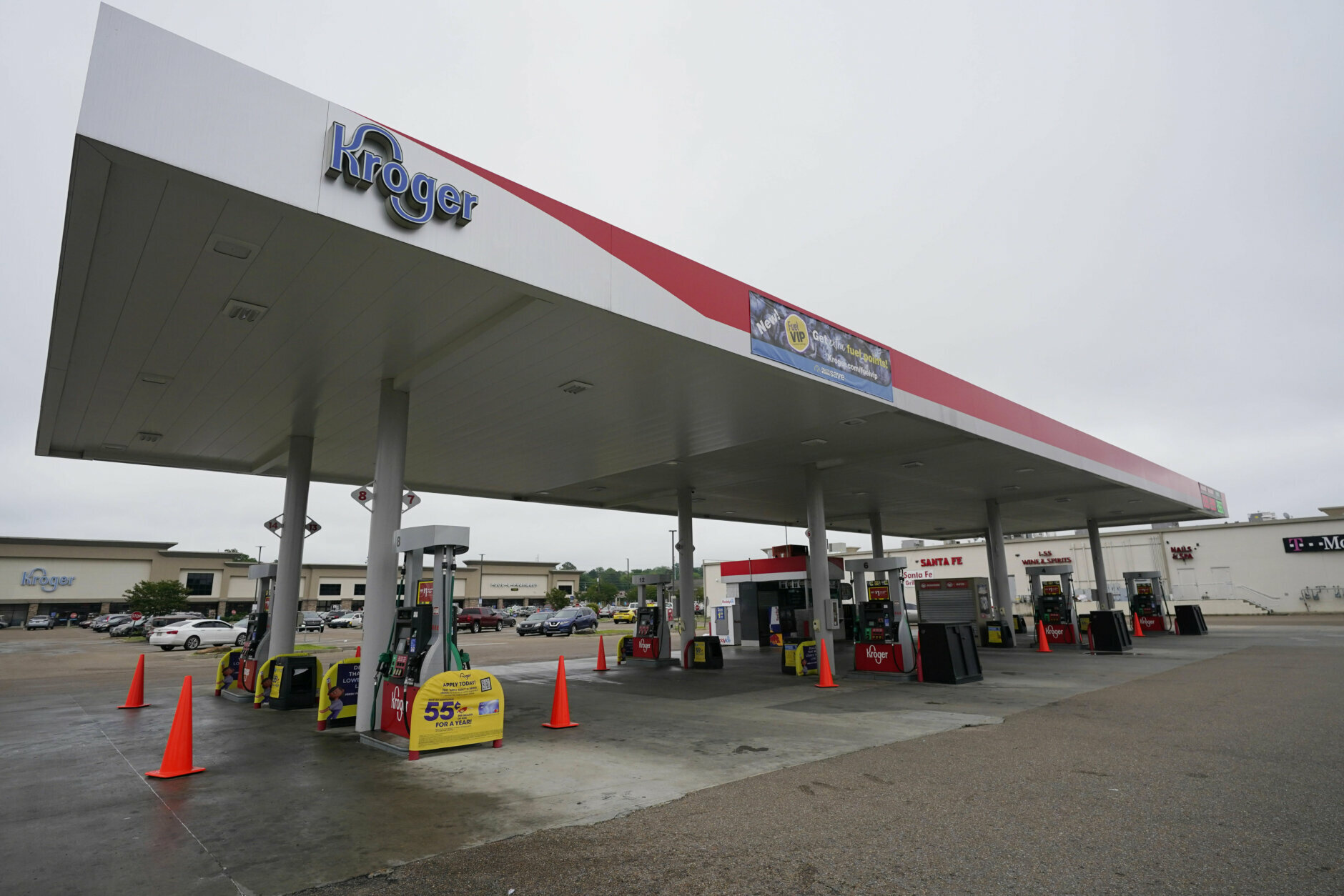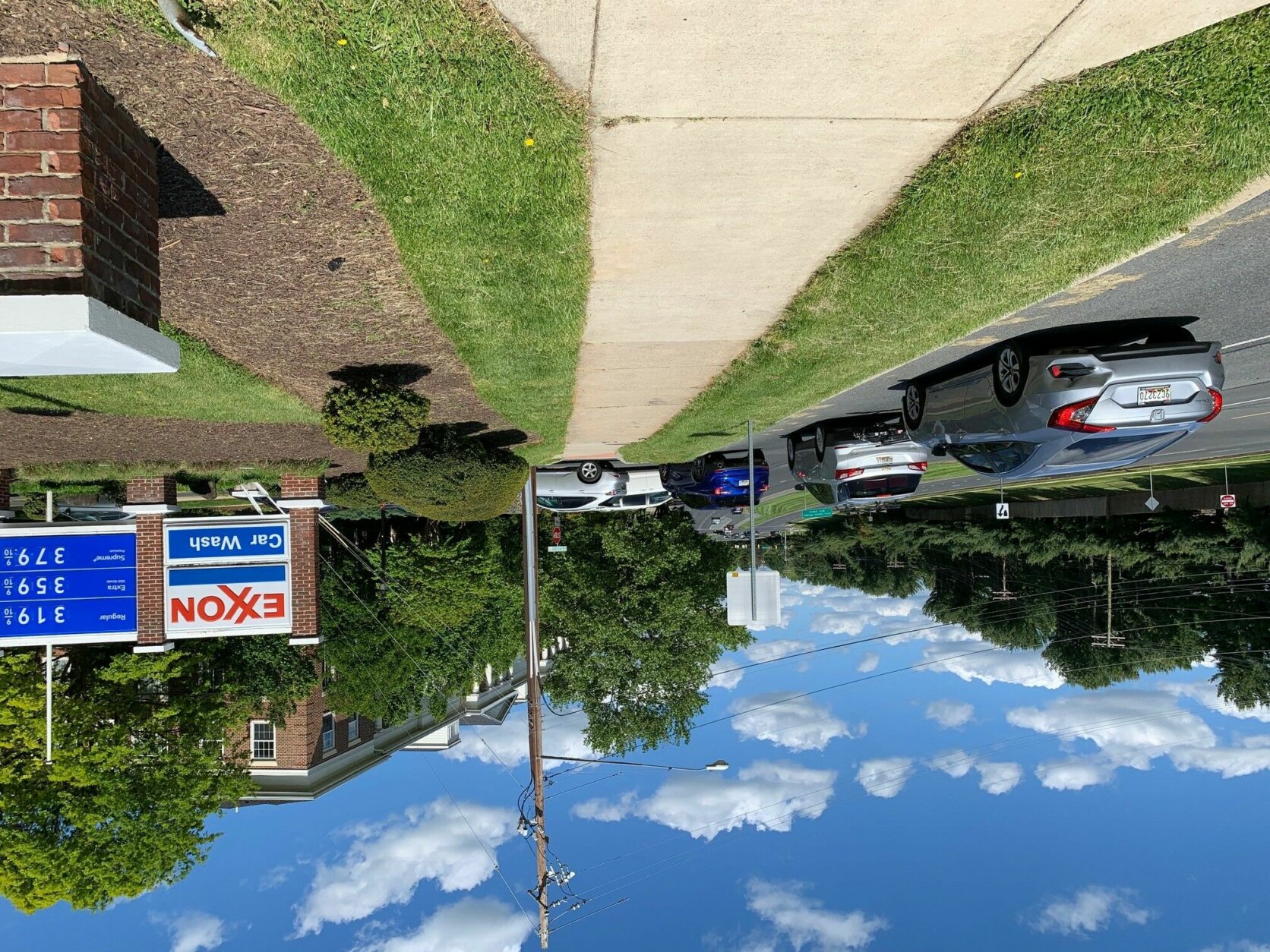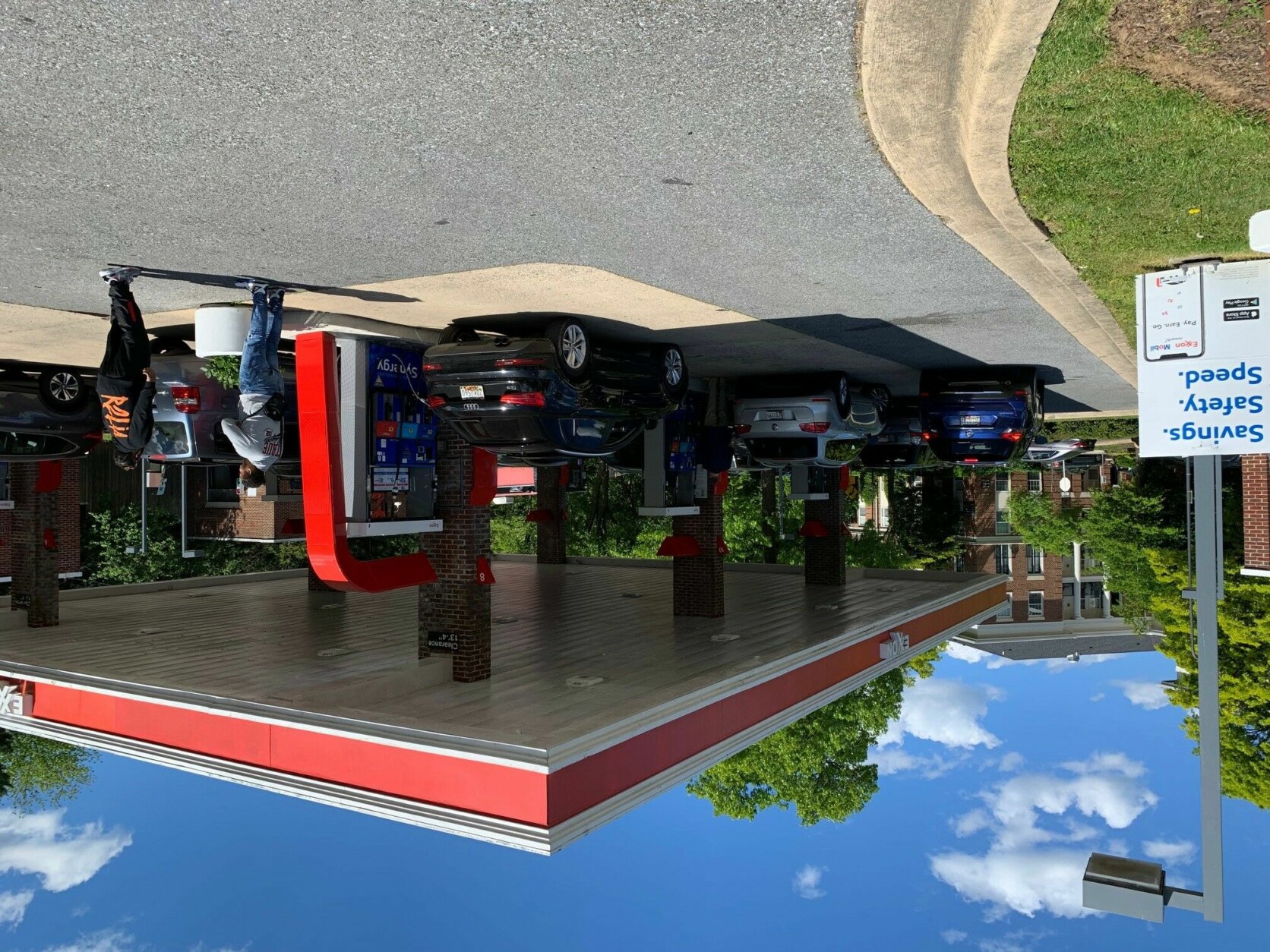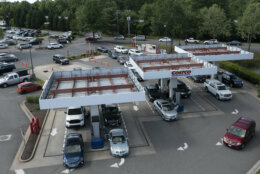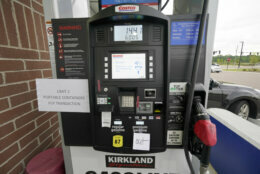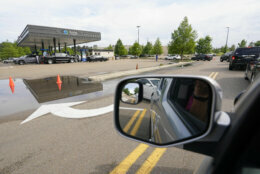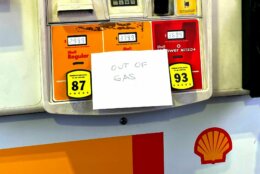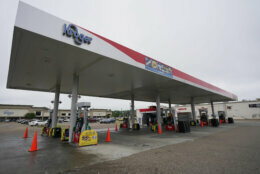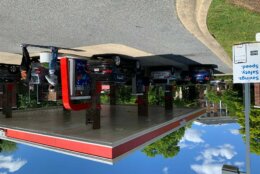The cyberattack that hit Colonial Pipeline, one of the largest gas pipelines in the U.S., has fueled panic-buying and long lines at the pump around the country — including in the D.C. area.
Officials have stressed there is no gas shortage and people shouldn’t race to the pumps, but many appear to be doing just that.
As of 5:23 p.m. Wednesday, about 52% of Virginia’s nearly 3,900 gas stations reported being out of gas, according to GasBuddy, which tracks supply. That’s up from the 17% of stations reporting they had run out of fuel as of 10 a.m.
About 15% of Maryland gas stations reported being out of gas.
In D.C., about 15% of stations are out of gas, according to GasBuddy.
In North Carolina, GasBuddy said 68% of stations report being without gasoline.
The Colonial Pipeline, which runs from the Texas Gulf Coast to the New York metro area, provides gas to about 45% of the fuel consumed on the East Coast and was hit by hackers on Friday who locked up the pipeline’s computer systems and demanded a ransom.
Colonial Pipeline said Wednesday night it has restarted the pipeline and will resume deliveries.
More Coverage:
- Drivers line up at DC-area gas stations in fueling frenzy
- Northam declares state of emergency in Virginia after ransomware attack on gas pipeline
Virginia, Maryland leaders urge residents to avoid panicking
Virginia Gov. Ralph Northam declared a state of emergency Tuesday to help the state prepare for potential supply shortages. The emergency declaration also allows state authorities to crack down on price gouging of gas and fuel.
Virginia Attorney General Mark Herring encouraged drivers to report suspected price gouging to the state’s Consumer Protection Section at consumer@oag.state.va.us or by calling 800-552-9963. A complaint form is also available on the attorney general’s website.
“Our anti-prince gauging laws have taken effect,” Herring said. “A lot of Virginian’s are struggling trying to make ends meet and the last thing they should have to worry about is getting ripped off at the gas pumps.”
The Virginia Department of Fire Programs also released tips for safely dispensing flammable fuels into containers.
In a statement, Prince William County Executive Chris Martino said the county has “several days of fuel on hand, and we are working with our primary and alternate fuel suppliers to ensure there is no interruption of fuel for public safety responses and other essential county services.”
Martino said the county is aware several commercial fuel stations are out of gas.
Elsewhere, Maryland Gov. Larry Hogan said he authorized Greg Slater, the Department of Transportation’s secretary, to take emergency measures in response to the pipeline incident.
“The emergency actions that we are taking will provide the state the flexibility it needs to address any disruption in fuel supply,” Hogan said in an emailed statement. “It is important for Marylanders to know that the supply chain is still working—albeit more slowly than usual—and there is no need for panic buying. While the operators of the pipeline anticipate that the disruption is likely to be short-term, we continue to prepare for all contingencies as part of our statewide response.”
Later Wednesday, Hogan said, “We’re not going to allow for price gauging and we’ll take steps to stop that from happening.” Maryland’s Office of Consumer Protection has the rules retail gas suppliers must follow available on their website.
Price gouging also is illegal during a declared state of emergency in D.C., which the city remains under because of the pandemic.
Anyone noticing exorbitant fuel prices, prices that jump suddenly or seem out of line with other area businesses are asked to report it for investigation.
“We won’t let businesses operating in bad faith harm residents,” D.C. Attorney General Karl Racine told WTOP in a statement. “We investigate every complaint we receive, and over the course of the pandemic, we’ve sent numerous cease and desist letters to stop this unlawful behavior and filed multiple lawsuits against businesses that have violated the law.”
Residents are encouraged to report any scams fraud, price gouging or other unfair business practices in D.C. to the Office of Consumer Protection vial email at consumer.protection@dc.gov, calling 202-442-9828 or texting 202-738-5212. Those interested in submitting a complaint can find more information on the D.C. attorney general’s website.
As the D.C.-area begins to see a shortage of gasoline, Earl Stoddard, Montgomery County’s office of emergency management and homeland security director, urged people to avoid unnecessarily filling their tanks.
He said that the “interruption to service isn’t as dramatic as people fear it is,” and that “much of what we’re saying across the country … is behavioral changes people are making.”
Stoddard said there is “not a good rational to do it right now,” since there is nothing indicating nationally, as of now, that the area should be experiencing a shortage, it is just people hoarding gasoline that is causing the abrupt shortage.
One Woodbridge gas station owner who called WTOP said that people are really scared after hearing about the state of emergency.
But the owner, who declined to be identified, said gas station owners were able to order gasoline supplies Wednesday, and those supplies coming to Virginia from the Midwest are expected Thursday night or Friday, so people will not be without gasoline.
A large part of the Colonial Pipeline went back into operation manually late Monday, and the pipeline anticipates restarting operations by the end of the week.
U.S. government officials said they were speeding the delivery of fuel by truck, ship and rail and sought to reassure the public there was no cause for alarm.
The U.S. Consumer Product Safety Commission issued a series of safety tweets, to remind people to use the appropriate containers for gas, including a tweet that said, “Do not fill bags with gasoline.”
According to Gas Buddy, the national average for a gallon of gas surpassed $3 per gallon for the first time since 2014, and would have happened even if the pipeline shutdown did not occur.
Gas Buddy said that the easing of pandemic restrictions and the nation getting back to normal are pushing prices up.
Those who need to fill up can use Gas Buddy’s Find Gas search feature to find a nearby pump that has supply.
“While this is not a milestone anyone wants to celebrate, it’s a sign that things are slowly returning to normal,” said Patrick De Haan, head of petroleum analysis at GasBuddy. “In this case, rising gas prices are a sign Americans are getting back out into the world — attending baseball games, going to concerts, taking a road trip — basically staying anywhere but at home.”
Here are the previous yearly peaks in gas prices, according to GasBuddy:
Jan 9, 2020 = $2.60
May 5, 2019 = $2.89
May 27, 2018 = $2.97
Sept 9, 2017 = $2.66
June 12, 2016 = $2.38
WTOP’s Zeke Hartner, Hannah Parker, Kristi King and The Associated Press contributed to this report.



